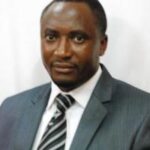A THE Accelerating Sustainable and Clean Energy Access Transformation (ASCENT) programme has connected 20 million people to electricity in Eastern and Southern Africa since its launch last year, marking a major step in tackling the region’s energy deficit.
Launched in 2024 by COMESA and the World Bank, ASCENT is backed by a core investment of US$5 billion and aims to mobilise an additional US$10 billion from development partners and private sector investors.
The initiative seeks to transform energy access through innovation, digital tools and regional collaboration.
Responding to a call by COMESA to ASCENT members to act with urgency in accelerating the programme implementation at a national level, Zambia has declared its full commitment to joining the ASCENT community while lamenting the high prices of alternatives sources of energy critical in the spearheading of the programme.
Speaking during the launch of ASCENT 2025 Week in Chongwe on Monday, World Bank Practice Manager Yadviga Semikolenova said the programme now included 11 member countries.
Ms Semikolenova described ASCENT as the backbone of the World Bank’s “Mission 300” initiative, which targeted connecting 300 million people to electricity by 2030.“Since the launch of Mission 300, 30 million people have gained access to electricity, and 20 million of them are in Eastern and Southern Africa,” she said.
“The ASCENT Programme represents a new era of partnership and innovation in energy access. By working together through regional platforms like COMESA, we can scale solutions faster and ensure no community is left behind.”
COMESA Assistant Secretary General for Programmes Ambassador Mohamed Kadah stressed that access to clean energy was no longer a luxury but a necessity. He urged member states to accelerate national implementation, warning that 630 million people in the region still lacked reliable electricity, while 790 million depended on charcoal, wood, and biomass for cooking and heating.
“We urge all ASCENT members to initiate national projects with urgency. Let us work together to unlock the full potential of clean energy in our region,” Dr Kadah said.
COMESA Assistant Secretary for Finance and Administration Dr Dev Haman outlined five strategic priorities to drive the programme’s success: harmonising policies, expanding infrastructure, engaging private capital, building technical capacity, and ensuring inclusivity in energy access.
Meanwhile, Energy Minister Makozo Chikote reaffirmed Zambia’s commitment to ASCENT but cautioned that high costs of renewable technologies remain a barrier.
His remarks, delivered on his behalf by Green Economy and Environment Minister Mike Mposha, urged stakeholders to take urgent action.
“While the promise of renewable energy is undeniable, affordability remains a challenge,” Mr Chikote said.
“We must reduce the costs of solar panels, wind turbines, and storage systems. I call upon development partners, manufacturers, and financiers to innovate not just in technology but also in pricing through concessional financing, bulk procurement, and local manufacturing.”








